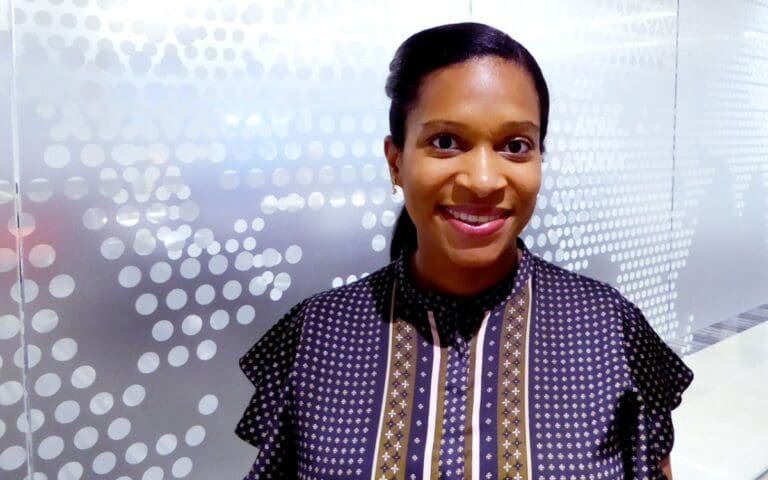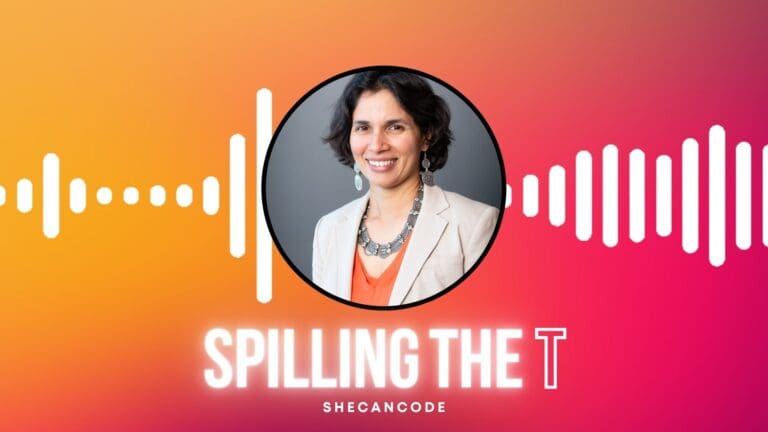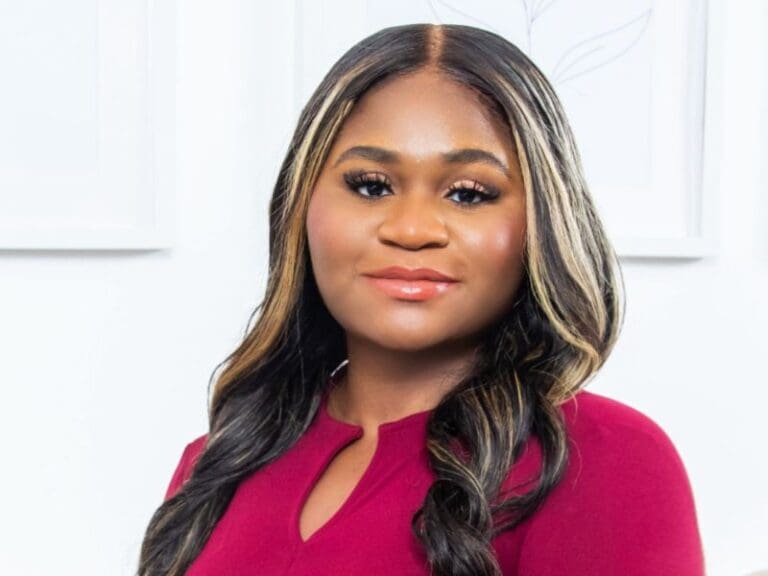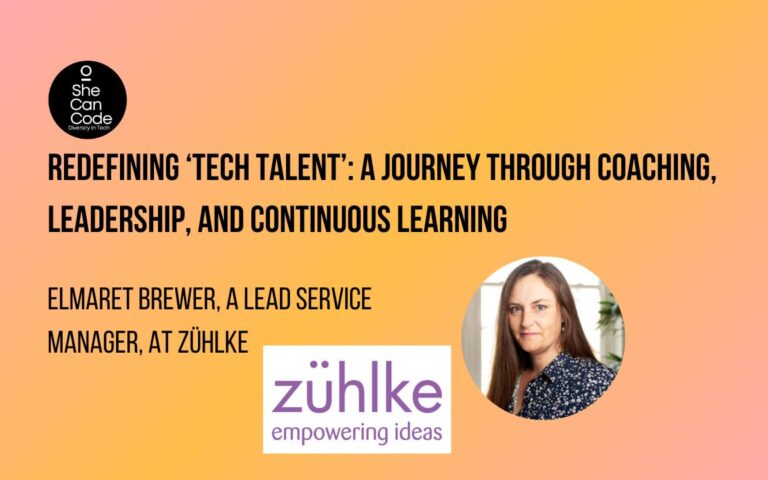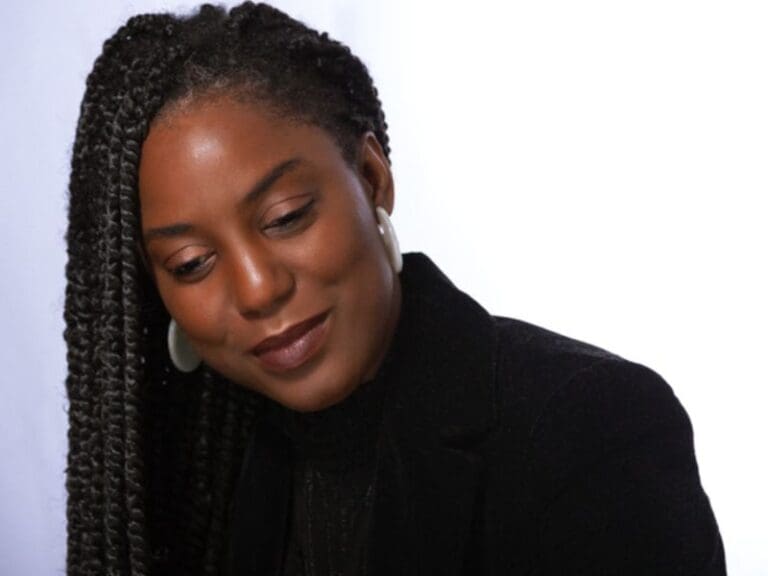Kerrine Bryan is a multi-award-winning engineer, co-author, and co-founder of Butterfly Books, an independent publishing house that produces children’s literature that addresses gender biases in careers.
Cited as one of the Telegraph’s Top 50 Women in Engineering, she scooped the Precious award for Outstanding Woman In STEM and was one of Management Today’s 35 Under 35 most notable businesswomen in the UK. Kerrine co-founded the publishing house Butterfly Books with her brother, Jason Bryan – a writer – to communicate to children a positive message about professions, especially STEM jobs, that are suffering skill gaps and diversity issues.
The books are targeted at young children (aged 4-7) – a critical time when children’s world views start to emerge and shape. They become cognisant of the roles that gender plays in their own homes and in their school environment. This is reinforced by the literature they consume – often, these convey outdated stereotypes of fathers fixing things in sheds and mothers cooking in the kitchen. Kerrine argues that books must normalise inclusivity, showing men and women in roles that are currently atypical of their gender to show that there should be no barriers to entering any profession based on things like gender.
My Mummy Is An Engineer, My Mummy Is A Scientist, and My Mummy Is A Plumber are among several books in the series that shatter stereotypes. Over recent years, they have also struck partnerships with the British Army to produce My Mummy Is A Soldier, the NHS for My Daddy Is A Nurse, the London Fire Brigade for My Mummy Is A Firefighter, and several UK rail companies for My Mummy Is A Train Driver.
How did you land your current role? Was it planned?
I’m currently a renewable energy developer, and this wasn’t something I had planned. My background is in engineering. I’m a chartered electrical engineer and have worked in the energy industry for 20 years. The first 11 years of my career were in the UK for an EPC (Engineering, Procurement & Construction) company in the oil and gas industry. I then took a 2-year career break to have my first daughter before returning to work in a new role, company, and country. That role was as a manager for a team of electrical engineers at a global engineering and professional services consultancy based in New York. It involved technical work, project management, and business development, focusing on power generation, cogeneration, energy-saving studies, and renewable power.
After over 5 years in that role, I felt it was time to try something completely different that could combine my technical skills with my extracurricular activities, such as entrepreneurial and community outreach skills relating to the independent publishing house, Butterfly Books, which I set up with my brother ten years ago, through which we produce children’s books that promote inclusivity across careers and industries. I was also keen to focus on strengthening my governance and policy experience as a board and council member of the IET.
The renewable energy developer role then came up, and, although I didn’t know the exact details of what a developer does, the description ticked a lot of boxes. After multiple interviews, I was intrigued by the role, but what really sold it to me was the team. I aspire to leave the world in a better state for future generations, and contributing to the transition to renewable energy helps achieve this goal.
I sometimes set five-year career goals, but they can be somewhat restrictive. I prefer to embrace opportunities as they come and explore new paths. Over time, I’ve realised that you may discover areas of work you previously knew little about, but after gaining some experience, you might find that you genuinely enjoy them—potentially shifting your career goals. While planning is important, it’s equally crucial to remain adaptable because life is unpredictable. As long as you are moving in the right direction toward your career and personal aspirations, the journey—though filled with challenges and setbacks—can equip you with valuable skills to become a better professional.
What are the key roles in your field of work, and why did you choose your current expertise?
My role as a utility-scale renewable energy developer involves originating and developing solar, wind, and battery storage renewable energy projects. This role encompasses project management across various aspects, such as transmission, land acquisition, permitting, environmental considerations, community engagement, engineering and procurement, and finance.
I collaborate with subject matter experts in each field to take a project from its initial stages to the point where it can be handed over to the project execution team. This team then completes the final designs, obtains later-stage environmental and building permits, and starts construction.
What I love about my role is its diversity and the multiple areas it covers. Each project is unique, requiring me to understand the communities where the projects are being developed. Every location presents different challenges, and my job is to address these challenges specific to each project and locality, making the necessary adjustments to ensure the project’s success.
Did you (or do you) have a role model in tech or business in general?
I have a few role models, but I’d like to highlight Claudine Adeyemi, founder and CEO of Earlybird, a technology company specialising in AI-driven employment solutions. I met Claudine a few years ago at the PRECIOUS Awards dinner, where we had both won awards in our respective categories. Watching and learning from a successful black entrepreneur who is also a mother is something I relate to and find very inspiring.
What are you most proud of in your career, so far?
I’m fortunate to have had many proud moments in my career, but I suppose I’m most proud of Butterfly Books, which has gained so much traction and great partnerships despite this really being a side-hustle. Through our children’s books, we’re making a positive difference by enhancing the aspirations and thoughts of future generations and helping to change attitudes that have historically hindered people—be it in careers or otherwise—because they are marginalised. Feedback from families who enjoy the books confirms the demand for this niche in children’s literature. This is a social enterprise borne from passion because the business’s provenance stems from personal experience of triumphing in careers in the face of disadvantage.
Much of our creative work focuses on recasting vocabulary and labels. As parents, we have come to fully appreciate how unhelpful titles like ‘fireman’ and ‘matron’ are in dismantling sexist stereotypes. So we established this publishing house to address the quality of literature that children read at school and home, as it shapes their worldviews, dreams, and aspirations, with some KS1/KS2 books reinforcing subtle gendered roles. Butterfly Books contributes to children’s literature by creating stories based on real people who are shattering stereotypes. Indeed, learning about the real-life stories and challenges faced by some professionals has made us more sensitive and informed writers.
What does an average work day look like for you?
Every day is unique as a utility-scale renewable energy developer. When I’m in the office, I have numerous meetings with team members, respond to emails, and review project documents prepared by our internal specialists or external consultants. My work involves considerable travel to meet with landowners where our projects are located, attend state government events related to renewable energy, and participate in community engagement events. As part of the permitting process, I am required to speak at public hearings to present the projects to the local government. I love that each day brings something new.
Are there any specific skills or traits that you notice companies look for when you’re searching for roles in your field?
Given the wide-ranging nature of the role, there are numerous elements to organise and integrate. Ensuring that everyone is aligned is crucial, making effective communication essential. It is vital to listen to our communities and ensure that their needs are communicated across all stakeholders in a project. Additionally, due to the scale of these projects, strong organisational skills are key.
Has anyone ever tried to stop you from learning and developing in your professional life, or have you found the tech sector supportive?
If people have tried, I haven’t noticed it! As a child, and as one of few Black kids in my school, my mum always told me I would need to work twice as hard to achieve half the success of many of my friends. This comment has always motivated me to go above and beyond in all that I do. Professional support is always needed, though. I found this in groups and organisations like the Institution of Engineering and Technology (IET), the Social Justice + Engineering Initiative (SJEI) or the Society of Women Engineers (SWE).
Have you ever faced insecurities and anxieties during your career, and how did you overcome them?
Despite the lack of women in engineering, I am fortunate. It feels a bit awkward to say this, but it highlights the times we live in. While significant progress has been made over the past century regarding equality, diversity, and inclusivity, there is still much work to be done to eliminate bias and prejudice in the workplace. As we have seen, progress in this respect is under threat.
I was fortunate to have supportive male peers and colleagues who encouraged my role in the engineering team. Many even expressed their deep respect for female engineers who have had to overcome significant barriers—barriers that still persist for women pursuing STEM careers. However, it wasn’t until a placement at a manufacturing company when I was 18 that I encountered an uncomfortable situation—my manager and mentor remarked that I looked ‘sexy in overalls.’
Working in a male-dominated environment brings its challenges. My first role as a lead electrical engineer a few years ago proved to be a steep learning curve. My team was composed entirely of men, all older than me. I felt like I had to prove my competence and worth more than a ‘typical’ (read ‘male’ and ‘senior’) engineering team leader would. Still, the experience helped me to grow professionally as a manager, team leader, and person.
Entering the world of work can be daunting. Do you have any words of advice for anyone feeling overwhelmed?
Ask lots of questions! You’ll find that, more often than not, others are wanting to ask the same thing. Don’t let pride hold you back from speaking up. Remember, asking questions is a crucial part of learning and growth. It helps clarify doubts, fosters understanding, and can lead to valuable insights, even for the person you are asking the question to. Plus, it encourages a culture of open communication and collaboration, which benefits everyone involved.
What advice would you give other women wanting to reach their career goals in technology?
Technology is advancing rapidly, so staying up-to-date with the latest industry news is essential. Attend industry events to learn about the newest developments and trends. These events also provide valuable opportunities to build a network of professionals in the field, fostering connections that can support your career growth and keep you informed about emerging innovations.


